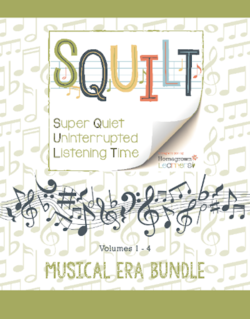There seems to be a lot of kick back against memorization in education these days, even amongst homeschoolers. Learning math facts and memorizing parts of speech, for example, have gotten a bad rap in favour of “critical thinking” and a “love of learning”. You may have heard people use terms like “drill and kill” when referring to this educational strategy.
I don’t buy it. Kids love to memorize. As a matter of fact, they are going to memorize all sorts of things whether you subscribe to memorization or not. It’s quite likely however, if you’re not engaging with purposeful memorization, that all your children’s memorization will amount to is annoying commercial jingles and the like.
Why memorize?
I recently listened to a podcast in which Andrew Pudewa likens memorization to “furnishing the mind”. If you want your children to think great thoughts, they need to be exposed to great ideas! Expose them to great thinkers, beautiful language, and truth! Fill their memory banks with passages from scripture to help them during difficult times, songs to sing to make their hearts glad, stories to ponder when they get bored!
I also came across this lovely quote while reading Bendigo Shafter a few months ago:
A mind, like a home, is furnished by its owner, so if one’s life is cold and bare he can blame none but himself. You have a chance to select from some pretty elegant furnishings.
I wonder if Andrew Pudewa got this idea of “furnishing the mind” from Louis L’Amour?
I find this concept of furnishing the mind quite inspiring, and have decided to take advantage of the natural bend of a young child’s mind toward memorization. As such, I try to add a good amount of memorization to our homeschool days.
What do we memorize?
We certainly don’t memorize simply for the sake of memorization, or to achieve some sort of status for doing so. As in furnishing our homes, I like to think we furnish our minds with either what is useful or beautiful. Math facts and grammar definitions can be categorized as useful, poetry as beautiful, and scripture as both.
How do we memorize?
We use several methods and aids in our memorization process. One that is especially popular with young children is music — if you can somehow sing a Bible verse, it will go a long way to hiding those words in our children’s hearts and minds. We have had great success in memorizing math facts and grammar definitions and lists with music as well using Math-U-See’s skip counting songs and First Language Lessons Audio Companion.
Another great memory tool we use is the Simply Charlotte Mason Scripture Memorization System. We use this for memorization of scripture, but it would work equally well for any content. It works so well for us because of the frequency we use it — we add it to each meal and are therefore reviewing the verses up to three times daily.
Another very simple memorization method we use is simple recitation. Don’t underestimate the power of simply reading the material aloud together, while more and more of it marinates into your mind each day! This is how we usually do poetry memorization during our Morning Time. Once we have been learning a selection for a period of time, I usually have my children recite as much of a selection from memory as they can, while I fill in the parts they miss. Each day the parts I fill in become less and less and their confidence grows!

Do you feel that memorization is important? How do you use it in your homeschool?







Memorization certainly has its place that’s for sure!
Thanks for stopping by Kylie!
I wrote about poetry furnishing the mind about this time last year.
http://journeyand-destination.blogspot.com.au/2015/02/poetry-as-means-of-intellectual-culture.html
I was thinking about the passage in Proverbs 24 which talks about wisdom & the house being filled(furnished)with rare and beautiful treasures. I think poetry does this. Love the quote you have above!
How’s the van??
Our van is gone 🙁 My husband is out van shopping today, and it will be really nice when we no longer have to drive him to & from work if we want to go anywhere during the week.
Thanks for pointing out that passage in Proverbs — it fits so beautifully!
I agree that memorization is important. We work on memorizing math facts with flash cards and worksheets. We do dictation (writing out poems and Bible verses) in part to help with memorization. And our girls have both done drama classes, where they have to memorize lines. Thanks for sharing your ideas!
Drama classes! That sounds fun!
yes, memorization is important, but I never seem to figure out how to fit it in. that’s what it comes down for me.
We often forget to do it! I try to group it all together at the start of the day, but sometimes I’m a little to gung ho to get started with the “real” work and leave it out.
We do a lot of memorization…everything from Bible verses to geography locations. I have found that it is so helpful to recall something that we have memorized when we are learning about something else. My son is mastering his skip counting this year and it has made multiplication a breeze. We do most of our memorization work during our morning time, but apply it throughout the day!
We do ours during our morning time too — I’m curious what geography memorization you do though. We don’t even do any formal geography lessons at this point, but my oldest is learning quite a bit so far through our history studies.